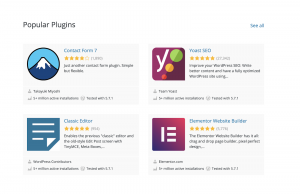It’s not you, being twentysomething is tough. Here’s how to find hope when the struggle is real, according to a psychologist
Meg Jay wrote the book on treatments for twentysomethings. She explains how young adult brains are more likely to think catastrophically—and feel negatively—than those of older adults, and they have less experience managing those thoughts and feelings.
Meg Jay is a developmental clinical psychologist specializing in young adult mental health. Her work has appeared in The New York Times, The Wall Street Journal, Harvard Business Review, and on NPR and BBC. She gave a wildly successful TED Talk, “Why 30 Is Not the New 20.” Jay is on faculty at the University of Virginia and maintains her own private practice.
Below, Jay shares five key insights from her new book, The Twentysomething Treatment: A Revolutionary Remedy for an Uncertain Age. Listen to the audio version—read by Jay herself—in the Next Big Idea App.
1. Our twenties are when uncertainty is at its highest and mental health is at its lowest.
Young adults need an age-specific approach that advocates for context over criticism, development over diagnosis, and skills over pills. This is important because so many twentysomethings are struggling—50% say they are anxious, 40% feel depressed, 30% feel suicidal, and 20% have problems with substance use—yet as a culture, we are not sure what to think or do. Perhaps, it is said, young adults are snowflakes who melt when life turns up the heat. Or maybe, some argue, they’re triggered for no reason at all. Yet even as we trivialize the struggles of twentysomethings, we are quick to pathologize them and to hand out diagnoses and medications.
Mental health has never been more in the zeitgeist, as today’s youth are the most willing in history to talk openly about it and to seek help. Yet what kind of help they find matters. I’m a developmental clinical psychologist who for 25 years has specialized in twentysomethings because that’s where all the action is.
There is a J-shaped curve that describes mental health across the life span. On average, well-being declines across childhood and adolescence and bottoms out in our twenties before rising in the decades after that. The twenties are such a low point because those are the most uncertain years we will ever know. As adult milestones have shifted upward, hovering closer to age 30 than to 20, twentysomethings now spend about a decade feeling uncertain about whether they’ll ever be partners, parents, professionals, homeowners, or financially independent.
The brain interprets uncertainty as danger. From an evolutionary perspective, it feels dangerous not to know what’s around the corner. That’s why uncertainty functions as what’s called a transdiagnostic stressor—one that can make people feel anxious, sad, suicidal, or cause them to reach for substances to cope. But twentysomethings aren’t in danger. They are in their twenties, and that feels scary.
It’s ironic. Culturally, we imagine that the twenties are a fun, carefree time because people don’t yet have spouses or kids or mortgages or big jobs when, really, it’s hard not to have any of those sources of safety or security or meaning. It’s stressful to be working on all of those milestones at once. It’s scary not to know if you’ll ever achieve them. It’s tough to feel settled on the inside when life isn’t settled on the outside.
2. Medication is not always the best medicine.
As a group, twentysomethings are overmedicated and overdiagnosed. About one in four young adults is taking a prescription mental health medication.
Antidepressants are the single most commonly used prescription drug of any kind among adults ages 20 to 59, yet young adults are rarely advised of the potential downsides: emotional numbing, decreased enjoyment and motivation, weight gain, sexual problems, and dependence. Antidepressants can help people feel less bad, but they can also make people feel less good.
Antianxiety or “benzo” use has doubled since the year 2000 and is second only to opioids when it comes to overdoses; young adults are the ones most likely to wind up in the emergency department. In addition, benzos are habit-forming, which means they are addictive and should be used only for very short periods of time.
Stimulant use has tripled since the year 2000, up even among those without bona fide attention disorders. Yet stimulant use in the neurotypical brain is counterproductive, leading young adults to work longer and harder but to produce lower-quality work.
And quietly but quite seriously, prescriptions for antipsychotics are increasing, too. Antipsychotics are now frequently layered on top of other medications as a form of polypharmacy. Most concerning is that the side effects and dangers of antipsychotics can be the most severe of all.
Stunningly, the majority of prescriptions for mental health medications are written by general practitioners who do not have specialized training in their use. To be clear, medication is sometimes useful or necessary, but twentysomethings need skills—not just pills.
3. Education is an intervention.
I write books because what many twentysomethings need most is better information. This helps us normalize, rather than pathologize, what’s happening. So your twenties may be a mental health low point, but that doesn’t mean something is wrong with you or that you’re doing something wrong.
Here are some helpful facts for twentysomethings:
- The twenties are the most uncertain years of life, and the brain interprets uncertainty negatively.
- Twentysomethings will have nine different jobs by age 35, and most are struggling financially.
- The twenties are the loneliest time of life; 50% of twentysomethings have no close friends, and 50% are single.
- Twentysomething brains are more likely to think catastrophically—and feel negatively—than those of older adults, and they have less experience managing those thoughts and feelings.
- 93% of young adults are going to be rejected at some point, and heartbreak is the most common precursor to feeling depressed.
- Our twenties are the years when we are most likely to use and abuse substances and to become addicted to alcohol, marijuana, and porn. They are also the years when we are most likely to cut back or stop.
- Over 50% of twentysomethings have not (yet) found a source of purpose.
Normalizing, rather than pathologizing, young adult struggles is important because twentysomethings are especially prone to the nocebo effect, or the power of negative expectations. When we tell young adults they are disordered, or when they read online that they have lifelong problems, we are setting them up to feel hopeless and helpless right when their identity and sense of self is forming, and just when they need to dig in the most.

4. Life is the best therapist: It’s affordable, accessible, and right outside your door.
Here’s my favorite fact about how people change in therapy: The largest slice of client improvement—a whopping 40%—comes from what happens outside of sessions. Compare this to the 15% improvement that comes from what you learn in treatment or the 15% that comes from the placebo effect. In other words, although education and expectations matter, your mental health is most likely to be improved by what’s happening—and by what you’re doing—at work, at home, in school, around your town, in your country, and in your relationships.
That’s why, as a therapist, I’m a pusher rather than a puller. I’d rather push people out into their lives than pull them in closer to me. The therapy relationship can be important, but as I tell all my clients, if I’m the most important person in your life, then I’m not doing my job. Change might happen in your therapy session, but there are 167 other hours in your week that are much more likely to impact who and how you are.
In fact, these skills are the ones most likely to improve your mental health:
- Learning how to work or how to feel more competent on the job.
- Learning how to think less catastrophically and more rationally or even optimistically.
- Learning how to be social and to find and make friends in adulthood.
- Learning how to love—and to survive a heartbreak.
- Learning how to move your body more.
- Learning how to have sex rather than rely on porn.
- Learning how to change bad habits like overreliance on substances.
- Learning how to make decisions.
- Learning how to choose purpose and meaning over despair.
- Even learning how to cook has surprising benefits for mental health.
Mental health gets better when life gets better—and when we get better at life.
5. Your twenties probably won’t be the best years of your life, and that’s good news.
Too many twentysomethings think their twenties are going to be the best years of their lives, and it’s all downhill from there. But it’s the other way around.
Remember that J-shaped curve? Your twenties may be a mental health low point, but more often than not they’re a turning point, too. These are the years when, after trending downward, how we feel starts to take an upward turn. This isn’t unrealistic optimism or magical thinking. It is a data-driven view supported by multiple studies in adult development, which have one consistent message: Life improves as we age, and, not coincidentally, so does our mental health.
Well-being improves across every decade of adulthood from the twenties to the eighties. So do happiness and satisfaction. So do close relationships. So does financial stability. And so do meaning and purpose.
“Life improves as we age, and, not coincidentally, so does our mental health.”
This gives twentysomethings hope, and hope is an elixir. It’s helpful and even healing. Young adults who have hope are less likely to feel anxious and depressed. They’re more likely to work toward the future. They’re more likely to engage in healthy behaviors. And they’re less likely to think about ending their lives. It’s the power of positive expectations.
I tell all my clients, “If your twenties turn out to be the best years of your life, then something has gone terribly wrong. Life should get better as you go.”
For 25 years, I’ve said I work with young adults because that’s where the action is. But to be more accurate, that’s where the action begins. Despite our cultural obsession with how great our twenties are supposed to be, I don’t know anyone in their thirties or beyond who would go back to being a twentysomething. I say that not to mean that the twenties are bad, as much as I mean that the twenties are when life starts to get good.
As you age, you will probably become happier and healthier simply because you’re more likely to have—and do—the things that make people healthier and happier. You’ll wake up, not to overwhelming unknowns but to whatever you have decided matters most. You’ll open your eyes to a chosen partner, purpose, or profession. You’ll get out of bed for the children, friends, or work you love. And you’ll walk out your door into the place you’ve decided to inhabit—or visit—at least for now. As you get older, you’ll likely feel more settled because you are more settled, not just on the outside but on the inside, too.
Your twenties may be an uncertain and scary time, but don’t panic, don’t despair, don’t catastrophize, don’t pathologize. The best is yet to come.
This article originally appeared in Next Big Idea Club magazine and is reprinted with permission.
ABOUT THE AUTHOR
Fast Company
(14)
Report Post




